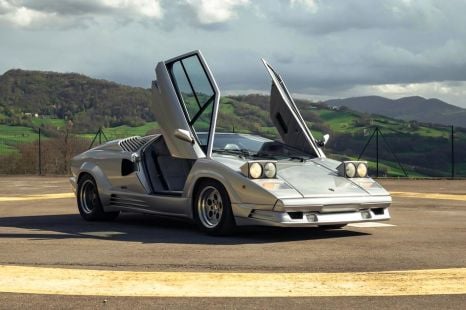

Anthony Crawford
1990 Lamborghini Countach review
6 Days Ago
Lexus' smallest model yet commands a premium price tag, but offers plenty of fun driving dynamics with a fuel-sipping hybrid powertrain.
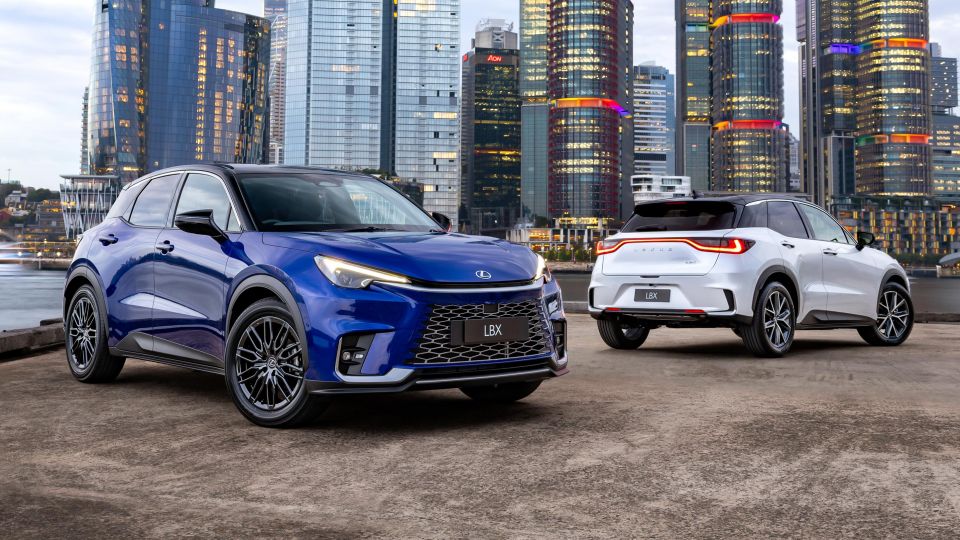
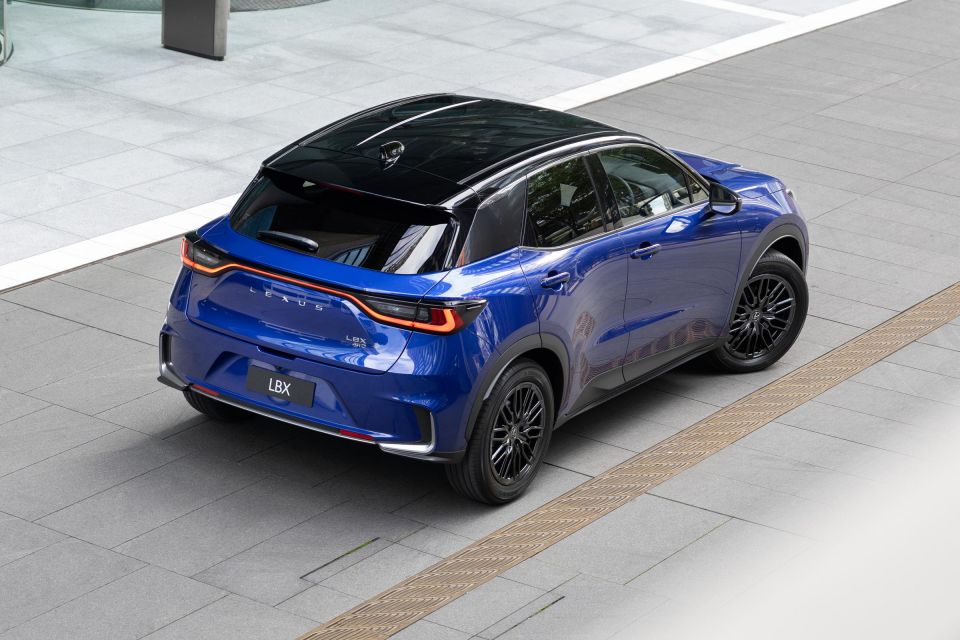

Quickly see how this car stacks up against its competition. Select any benchmark to see more details.
Where expert car reviews meet expert car buying – CarExpert gives you trusted advice, personalised service and real savings on your next new car.
The Lexus LBX is a critical model for the premium Japanese carmaker as it forms as a new entry point for customers to the brand.

This luxurious light SUV is technically Lexus’ smallest model ever, undercutting the CT hatch that was on sale locally from 2011 to 2021.
The LBX is based on the same GA-B platform as the Toyota Yaris Cross and is exclusively powered by a 1.5-litre three-cylinder petrol-electric hybrid drivetrain producing 100kW of power.
Deliveries of the LBX commenced in Australia on March 18, with Lexus Australia claiming around 1500 examples are set to arrive in the first 12 months. Despite this Lexus Australia chief executive officer John Pappas told CarExpert supply for the first 12 months will be tight.
This vehicle is one of the most luxurious light SUV offerings in Australia to date. Is it worth considering? Read along to find out.
Three variants are being offered at launch.
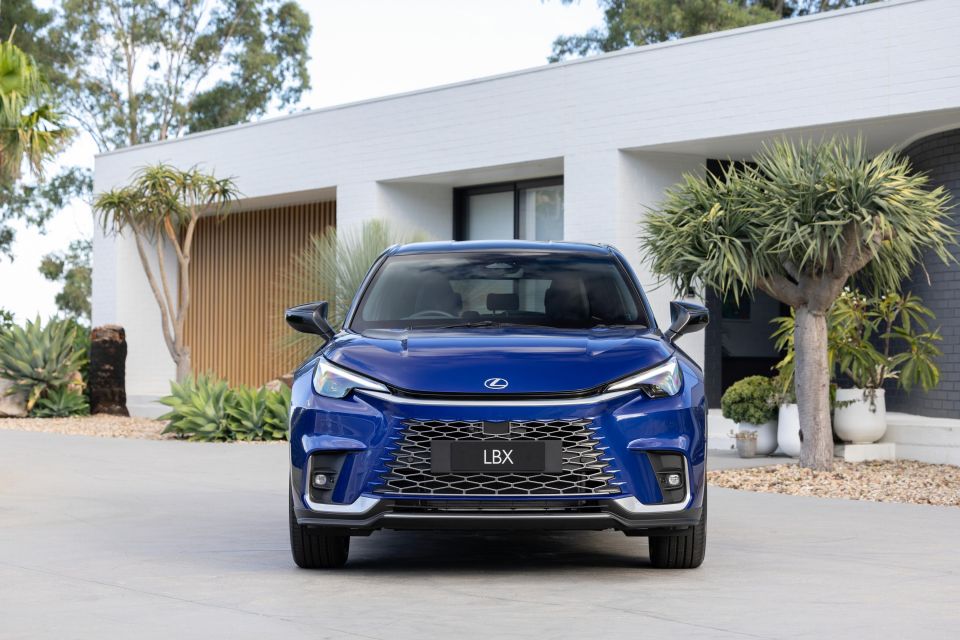
2024 Lexus LBX pricing:
Prices are before on-road costs
To see how the LBX compares with its rivals, use our comparison tool.
Walking up to the LBX it has a cute yet striking presence that’s distinctly Lexus. There’s the classic spindle grille up front, some cladding around the wheel arches to emphasise that this is a crossover, as well as full-width tail light assembly.
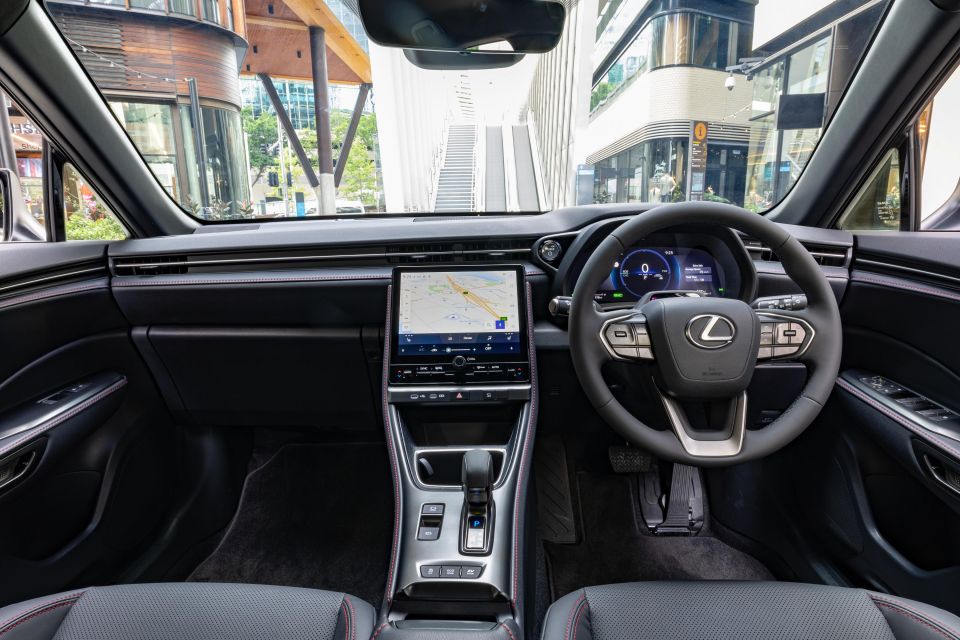
Opening up the door is a strange experience but a very similar one if you’ve been in any recent Lexus model. The LBX has an E-Latch door handle system that requires you to press a button on the inside of the exterior door handle for it to open.
The exterior door handle doesn’t actually move when go to open it. This can be a little awkward for people unfamiliar with them as they think the door handles are broken.
Hopping in you’re presented with a set of sporty-looking seats with finishes that depend on which trim level you opt for. The entry-level Luxury receives black NuLuxe leatherette upholstery with red highlights, whereas the flagship Sports Luxury receives combination leather-accented and UltraSuede upholstery with contrasting orange highlights.
The driver’s seats in both LBX variants offer plenty of electric seat adjustment allowing you to dial in your desired seating position. I quite liked how much you’re able to dial up the thigh support.
Both the front seats offer heating across the entire LBX range which is incredibly handy when you first hop in the car on a chilly morning.
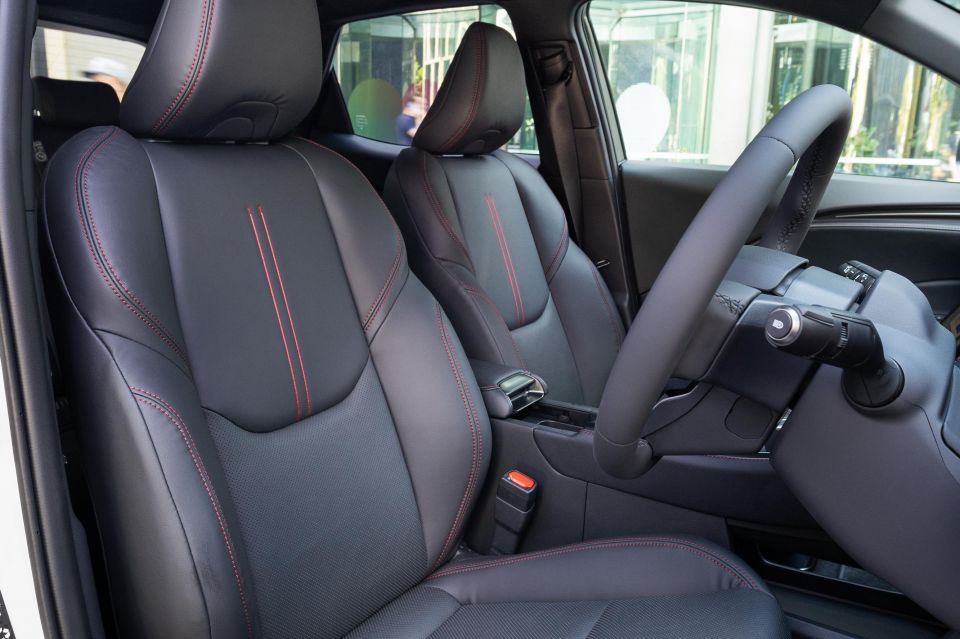
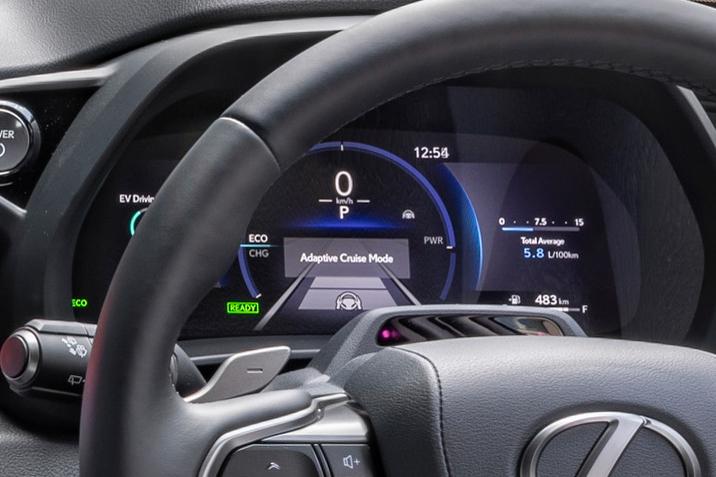
Ahead of the driver in the entry-level LBX Luxury is a NuLuxe leatherette-wrapped steering wheel which, like the seats, is incredibly soft to the touch. It may be controversial but I much prefer how this steering wheel feels to the proper leather-accented unit in the flagship LBX Sports Luxury.
Continuing why the LBX Luxury’s steering wheel is better is because it has regular steering wheel buttons that are logical and have a satisfying click.
The LBX Sports Luxury, like a number of recent Lexus SUV models, has touch-sensitive buttons that are confusing at first and a little distracting. The button’s purpose changes depending on which page you have selected, and you need to refer to the head-up display to see what functions the buttons will do.
The touch-sensitive steering wheel buttons in the LBX Sports Luxury are needlessly complicated. I don’t understand why Lexus didn’t just make the Luxury’s regular steering wheel buttons standard across the range because there’s no learning curve needed to use them.
Behind the steering wheel is a proper 12.3-inch digital instrument cluster that appears to be clear and high-resolution. It offers plenty of configuration with three main page layouts that can be customised to your liking.
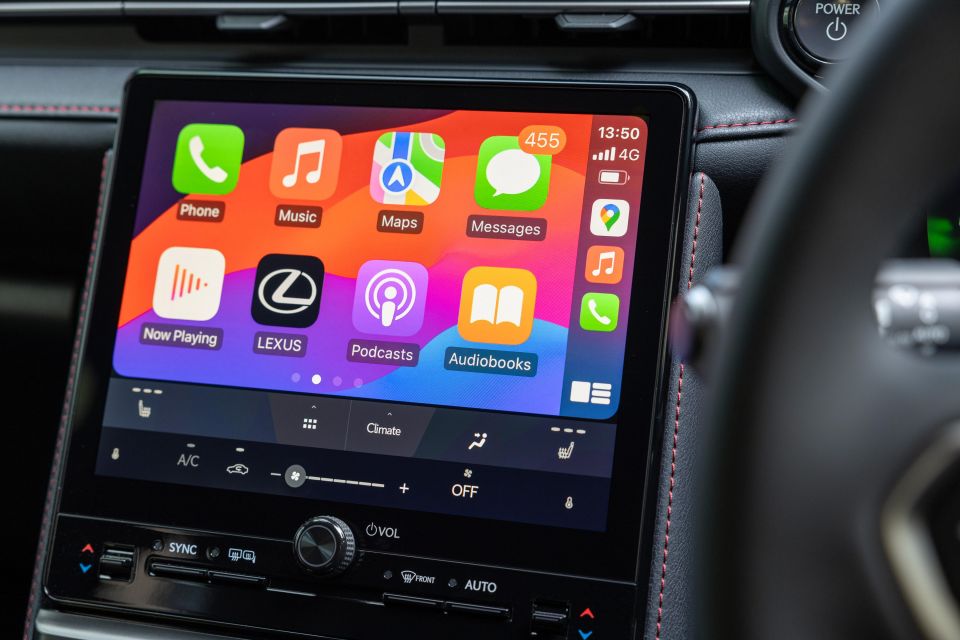
Going back to those touch-sensitive steering wheel buttons in the LBX Sports Luxury, when you’re moving you can’t actually change the instrument page layout. You can however in the LBX Luxury which is so confusing.
The head-up display in the LBX Sports Luxury is bright and can be configured to display minimal or a lot of information. Unfortunately the head-up display isn’t available in the entry-level Luxury variant at all.
Moving across the 9.8-inch touchscreen infotainment system is the centrepiece of the LBX’s interior, sitting proud on the dashboard. It’s a square unit that like the digital instrument cluster is bright and high-resolution, though it’s a fingerprint magnet.
The touchscreen’s user interface is really easy to understand and to navigate. There aren’t a whole heap of sub-menus to get lost in which is a relief.
As standard the LBX offers both wireless Apple CarPlay and Android Auto. With my iPhone 15 Pro Max connected wirelessly I didn’t experience any dropouts.
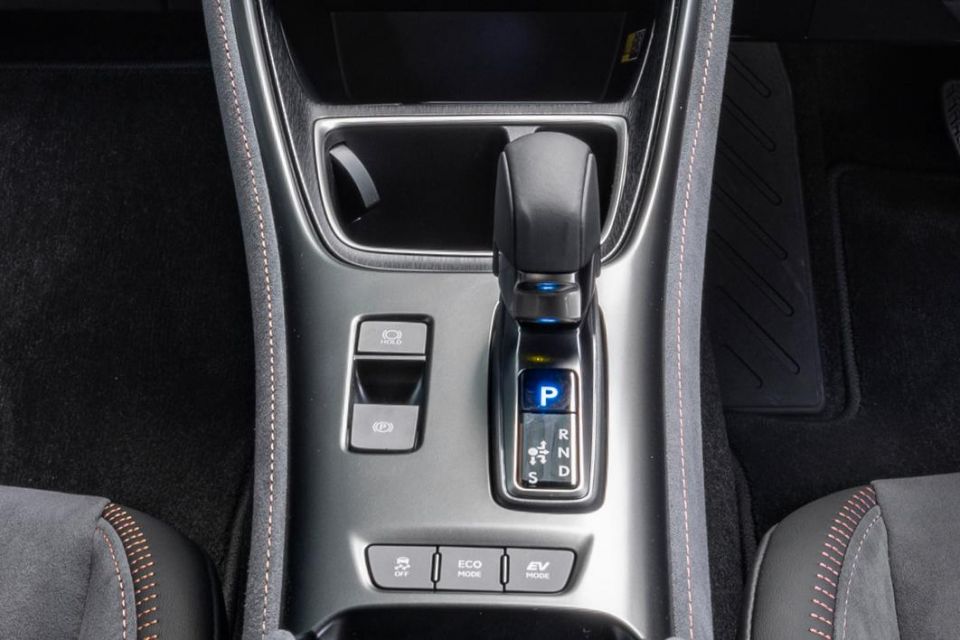
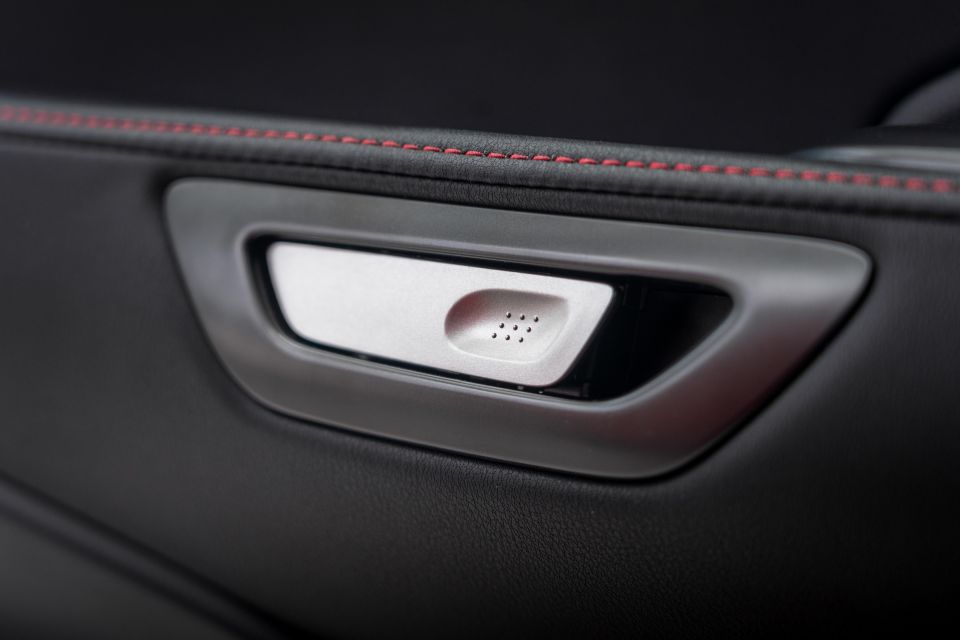
Thankfully there’s a wireless charger at the base of the dashboard in a small storage cubby which helps keep you’re phone topped up. There are also two USB-C ports just below the touchscreen.
It’s nice to see there are some physical climate control switchgear in the LBX, unlike some its premium rivals which are completely integrating them into the touchscreen. You’re able to control items like the temperature and defrosters with physical switches and buttons, though adjusting things like the fan speed can only be done using the touchscreen.
Looking around the cabin there are a considerable amount of soft touches. This is definitely no Toyota Yaris Cross on the inside with harder plastics being difficult to find.
On the centre stack there’s a classic Lexus hybrid gear selector which has a somewhat confusing action for people unfamiliar with it. Cupholders are also few and far between. There’s one always readily available, however the second one is hidden by the sliding centre armrest.
Under the centre stack there’s an open area that’s large enough to house a handbag. This is a nice touch because the glovebox on the passenger side is so small the owner’s manual takes up all the space.
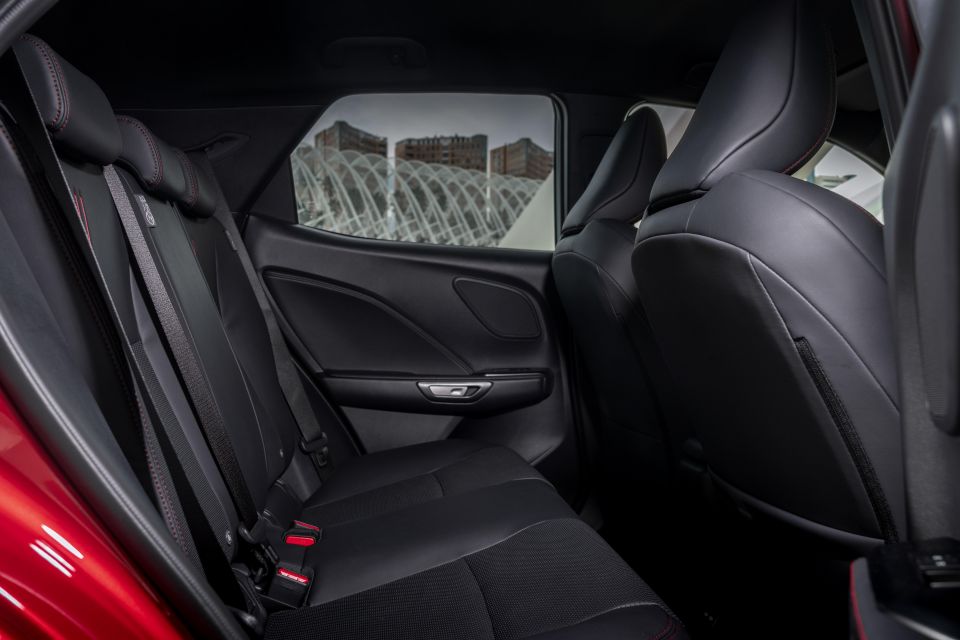
Moving to the second row is where the LBX’s appeal starts to come undone. The space on offer is really limited, meaning this car is obviously more geared towards single people or couples with no children.
Once I had pried myself into the second row I found there’s virtually no legroom behind my own driving position, plus head and shoulder room felt really cramped. In order to get out of the LBX I need to step like I was using a ladder because the door opening is so tight.
If the lack of space wasn’t enough of a sign that the LBX’s second row isn’t the best place to be, there aren’t many amenities at all. The only notable inclusion are two USB-C ports on the back of the centre console. There are no rear air vents, nor fold-down armrest for second-row passengers.
At the back the LBX comes as standard with a powered tailgate which is a premium feature for this segment. Once the tailgate is open the amount of space depends on which variant you opt for.
Lexus officially quotes boot space for the LBX 2WD variants at 402 litres with the rear seats up, whereas boot space for the LBX Sports Luxury AWD is a slightly tighter 315 litres. Folding the rear seats of the LBX 2WD variants expands boot capacity to 994 litres.
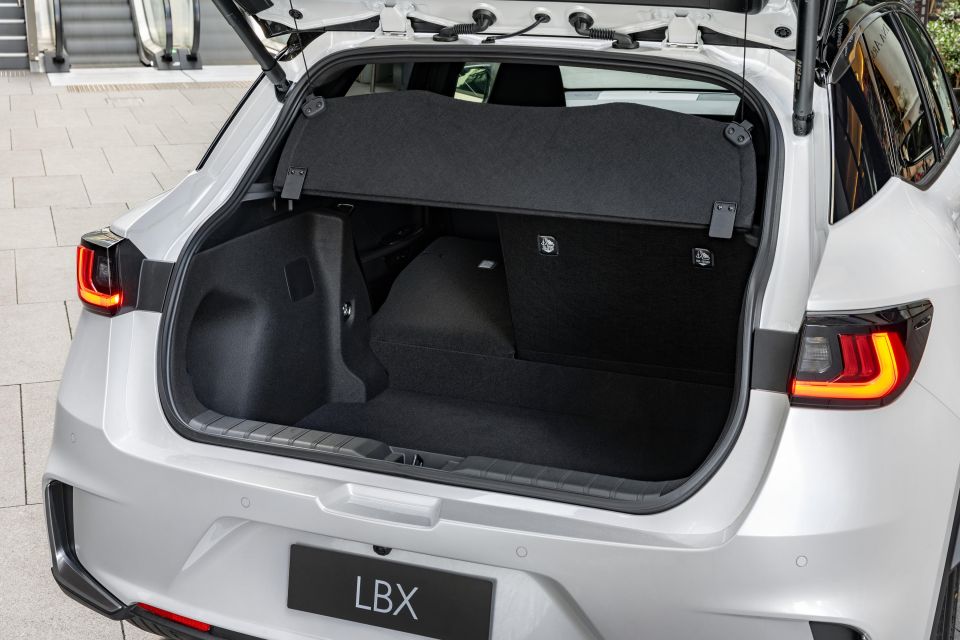
Boot space in the LBX 2WD variants is okay, while in the Sports Luxury AWD it’s not great as the rear electric motor-generator eats into the storage space. Both LBX variants have a high loading lip which isn’t ideal when you’re lifting heavy items into the boot.
Sure folding down the rear seats makes the boot space on offer larger, but it’s not necessarily more useable because there’s a steep lip where the seats fold. It’s unfortunate the rear seats don’t fold flat.
Lastly the entire Lexus LBX range only comes with a tyre repair kit. That means there’s no spare tyre whatsoever. For some people this might be okay, but for others it’s something to be really mindful of because you don’t want to get stuck in the middle of nowhere with a flat tyre waiting hours for roadside assistance.
The Lexus LBX is hybrid-only. It’s available with either front- or all-wheel drive, depending on the variant.
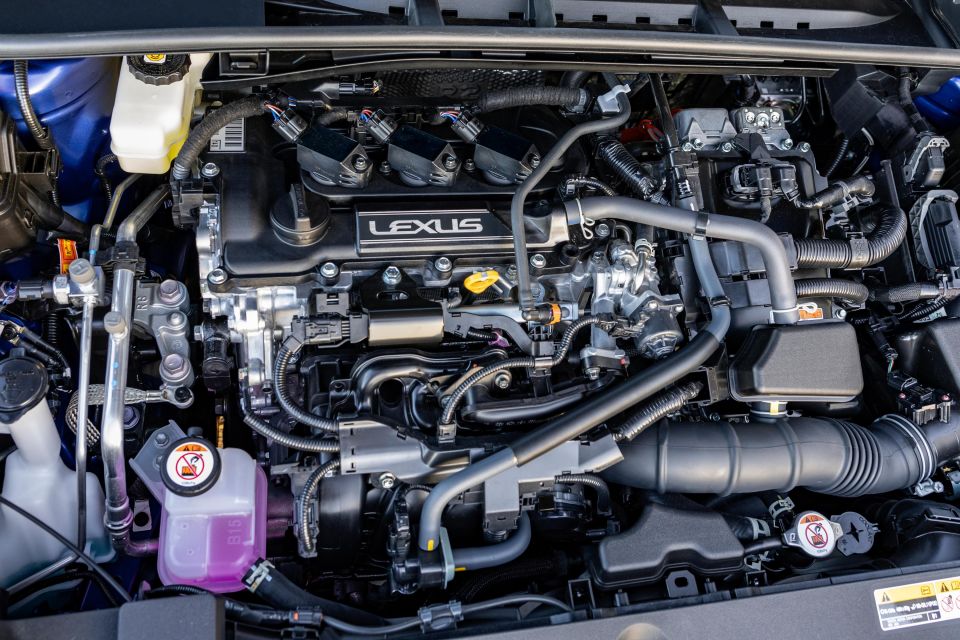
| Model | Lexus LBX |
|---|---|
| Engine | 1.5L three-cylinder series-parallel hybrid |
| Engine power | 67kW |
| Engine torque | 120Nm |
| Front motor generator | Synchronous permanent magnet electric motor |
| Front motor generator power | 69kW |
| Front motor generator torque | 185Nm |
| Rear motor generator (AWD only) | Asynchronous induction electric motor |
| Rear motor generator power | 4.7kW |
| Rear motor generator torque | 52Nm |
| Total system power | 100kW |
| Battery | Nickel-metal hydride |
| Transmission | e-CVT |
| Driven wheels | Front-wheel drive (all-wheel drive optional) |
| Weight | 1330kg (kerb 2WD) 1415kg (kerb AWD) |
| Fuel economy (claim) | 3.8L/100km |
| Fuel economy (observed) | 5.2L/100km (mixed driving 2WD) 5.4L/100km (mixed driving AWD) 4.4L/100km (urban driving 2WD) |
| Fuel tank size | 36 litres |
| Fuel requirement | 91 RON |
To see how the LBX compares with its rivals, use our comparison tool.
Starting up the Lexus LBX is a simple process that feels very familiar if you’ve ever driven any Toyota hybrid vehicle. You press the start button and there’s a subtle beep and flash on the dash indicating you’re ready to drive.
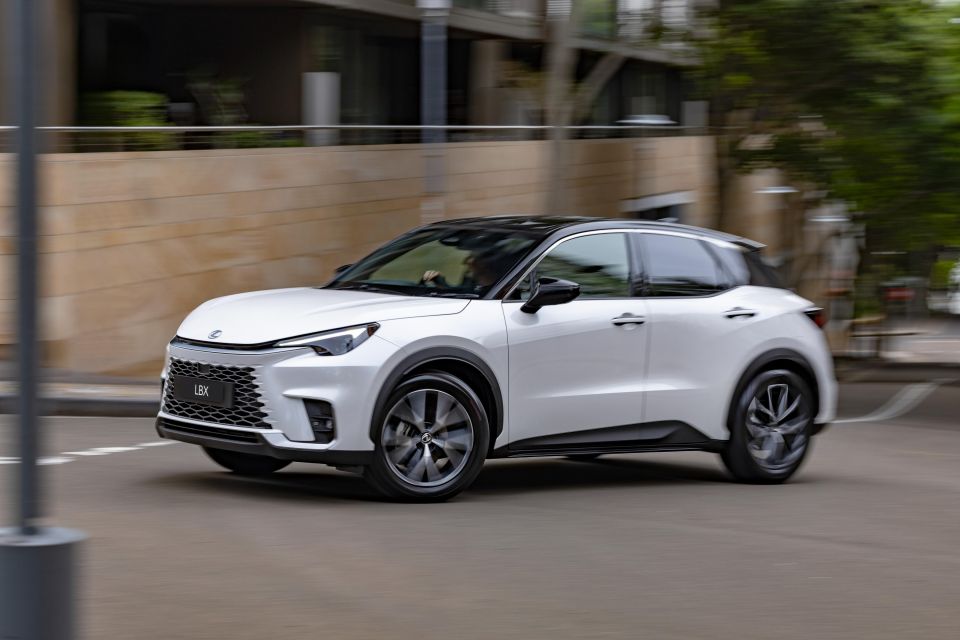
Typically the startup process is completely silent, though on cold mornings the three-cylinder petrol engine may switch on to warm up the fluids and give the battery pack a slight charge.
As I noted in the interior section the LBX’s gear selector might take you a second to acquaint yourself with if you’ve never used a Lexus gear selector before. Once you know how it works it’s fairly self explanatory.
There are subtle differences with the gear selectors in the LBX Luxury and Sports Luxury. When you pull the gear selector directly downwards in the former it activates ‘B’ mode which amplifies regenerative braking and also uses the engine to slow you down more, whereas in the latter it activates ‘S’ mode which is essentially a sport mode.
Setting off the LBX will happily cruise around on EV mode at lower speeds. Once you reach a certain speed, are going uphill, or push the accelerator a little harder from a standstill however, the petrol engine will kick in.
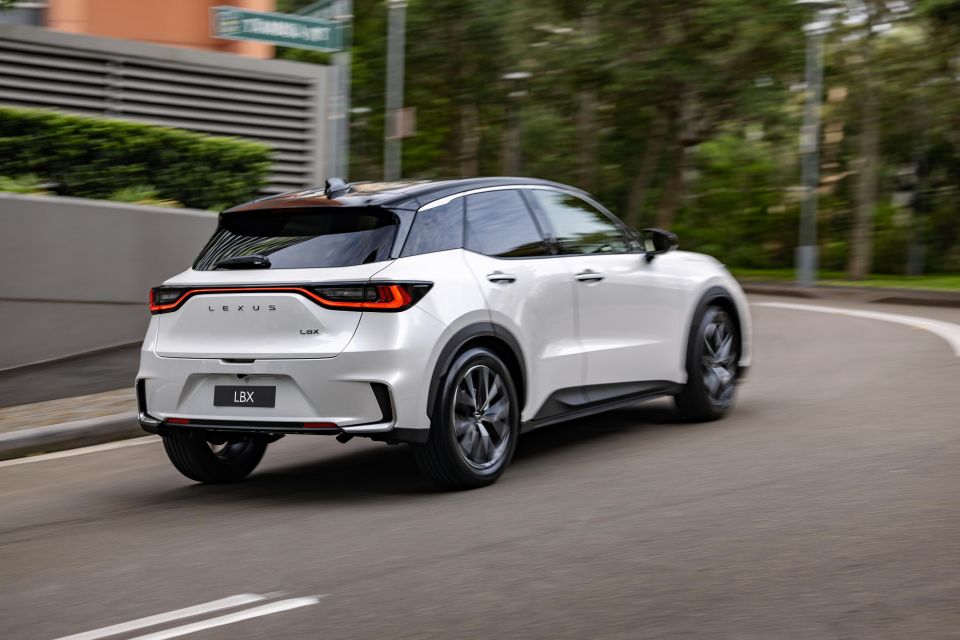
There’s a noticeable difference in how the Lexus LBX’s 1.5-litre naturally aspirated three-cylinder petrol engine surges to life when compared to the Toyota Yaris Cross’s. It’s nowhere near as rattly and shaky which can sometimes be the case with three-cylinder engines as they’re not as balanced as four-cylinder engines.
This makes the engine startup process more subdued and less noticeable, which are both huge ticks for the LBX. If you weren’t paying attention in everyday traffic you’d be hard-pressed to know when the engine actually fires to life unless you’re looking at the digital instrument cluster.
Whenever the three-cylinder petrol engine does fire to life its fuel consumption is initially quite high. This is because it’s getting all the fluids moving around the engine again and it’s also charging up the nickel metal hydride high-voltage battery pack.
Although the LBX may produce 15kW more than the related Yaris Cross Hybrid, don’t expect its total system output of 100kW of power to blow you away. Thanks to the electric motor-generator (or generators in the AWD) however, the initial acceleration can get you ahead of traffic at the lights if you’re that way inclined.
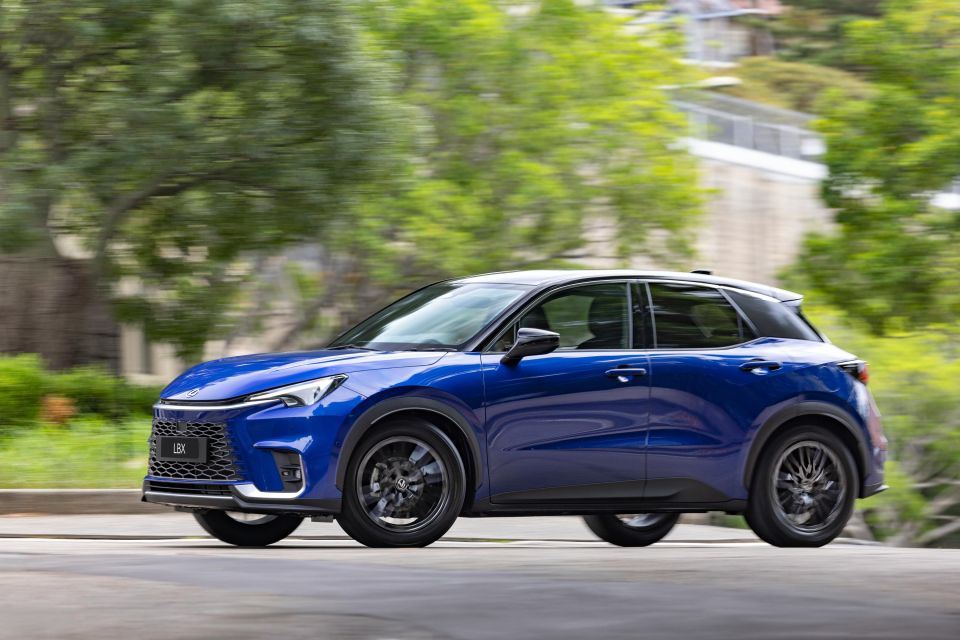
It’s worth noting the all-wheel drive version of the LBX is 85kg heavier than the front-wheel drive versions which makes the claimed 0-100km/h sprint 0.4 seconds slower. Front-wheel drive LBX variants are claimed to be able to do the 0-100km/h sprint in a docile 9.2 seconds, whereas the all-wheel drive LBX takes 9.6 seconds.
Despite not being at outright sports car (save that for the not-yet-confirmed-for-production LBX Morizo RR), the LBX has direct steering and is still really chuckable and dynamic in the corners. I’ve had similar experiences with all the vehicles based on Toyota’s modular TNGA platform.
Once you’re cruising about in the city the LBX is much quieter and refined than the Yaris Cross. The only prominent noise you hear is the whine of the electric motor-generator, especially when you’re slowing down with regen.
The LBX’s ride and handling is yet another highlight of this luxurious light SUV. It feels like a proper Lexus in the sense the majority of the bumps are soaked up, though you still get a sense of what is happening underneath the car.
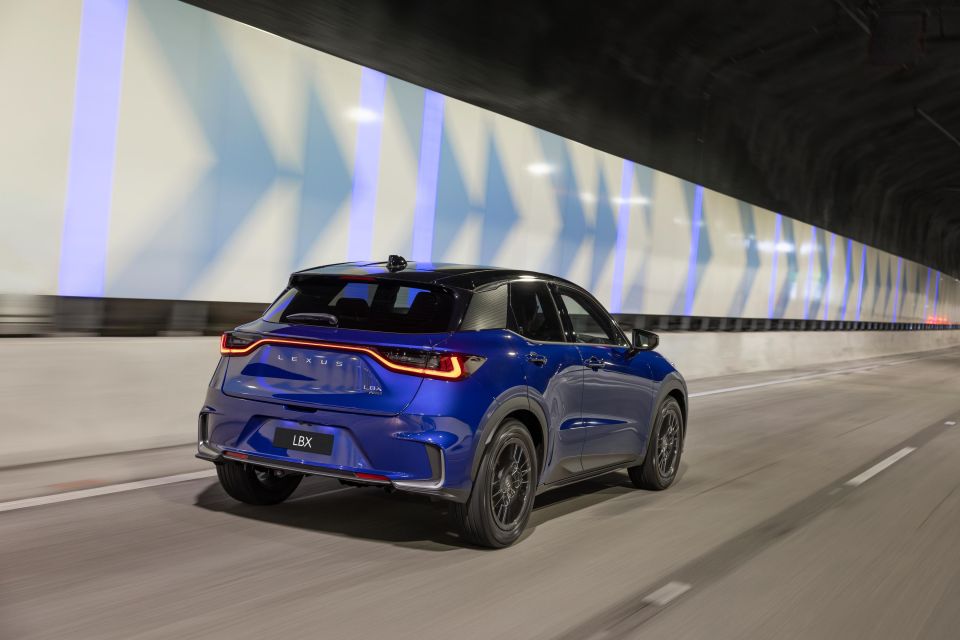
Where expert car reviews meet expert car buying – CarExpert gives you trusted advice, personalised service and real savings on your next new car.
Two-wheel drive versions of the LBX have a torsion-beam rear suspension setup, whereas the all-wheel drive version has a more sophisticated double wishbone trailing arm rear suspension setup in order to accomodate the extra weight of the rear electric motor-generator.
Despite this I found it really hard to distinguish any real differences between the two types of rear suspension. I think that goes to show how well Lexus has tuned the two-wheel drive’s rear torsion-beam setup. Both of them are able to take on speed bumps like a champ.
Given it’s diminutive exterior dimensions, the LBX is an absolute dream to park. Its steering is really to turn lock-to-lock and it has really small turning circle of 5.6 metres.
As standard there are both front and rear parking sensors, as well as a surround-view camera. If you step up to the Sports Luxury variant you also get a semi-autonomous parking assist.
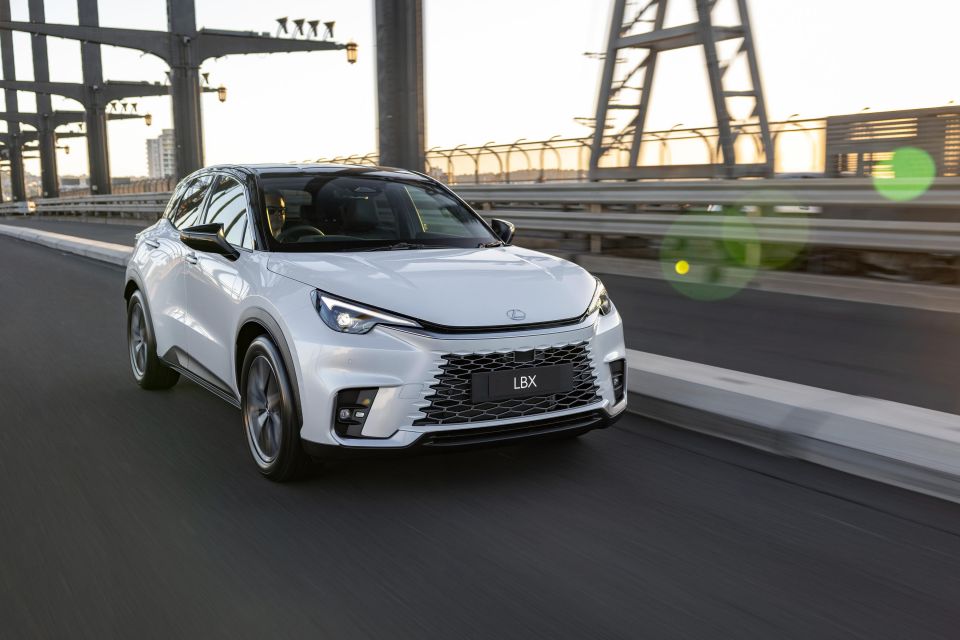
When you get out on the open road at higher speeds it becomes apparent the city is where the LBX feels most at home. The hybrid powertrain starts to run out puff when building up speed which causes the three-cylinder petrol engine to drone as it’s mated to an electric continuously variable transmission (e-CVT).
Once you reach a cruising speed however out on the open road the LBX is surprisingly refined. The hybrid SUV doesn’t get blown around too much and can hold its own on the road against larger vehicles.
The flagship Sports Luxury variants have active noise cancelling which does drown out some of the road and tyre noise that’s prevalent on coarse-chip bitumen roads. It’s worth calling out road noise in the entry-level Luxury variant wasn’t overly bad either.
On the safety front the entire LBX range comes with driver attention monitoring. While I was driving it didn’t cause any frustrations whatsoever, however when my co-driver was behind the wheel it beeped incessantly.
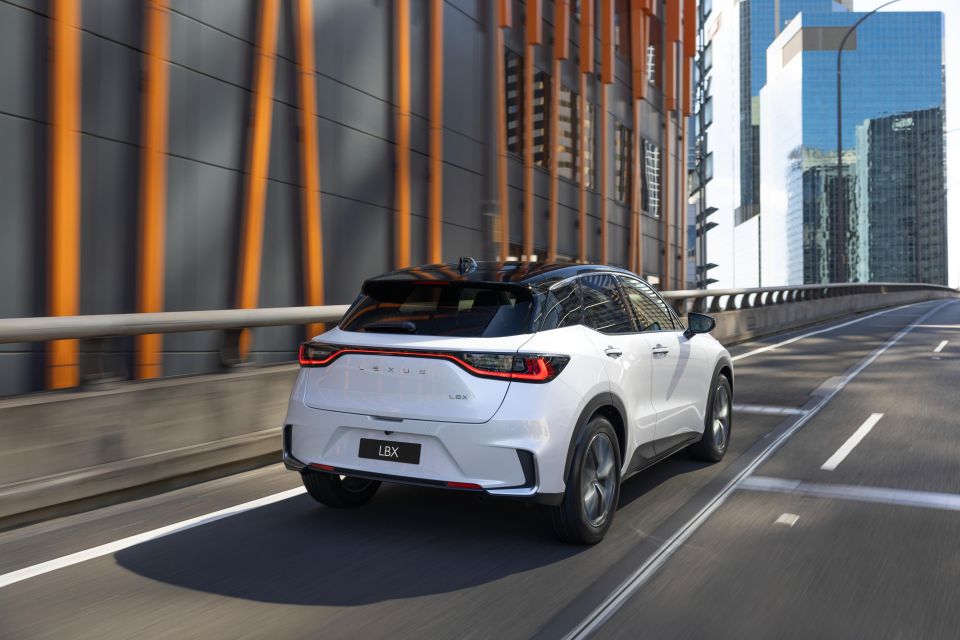
Adaptive cruise control comes as standard and it’s surprisingly very good. The system is able to respond naturally when cars merge into the lane ahead of you and not slam on the brakes immediately.
The car’s lane-keep assist function is also helpful on clearly marked highways and freeways with gentle curves, but I turned it off because I found it to be too forced on narrow and winding urban Sydney roads.
Lastly the entire LBX range comes with bright LED headlights that have an automatic high-beam function. Although I didn’t get an opportunity to test these out properly they’re really handy for those driving at night in rural and regional areas.
There are two different Lexus LBX variants offered locally. The entry-level Luxury can only be had with front-wheel drive, whereas the flagship Sports Luxury is available with either front- or all-wheel drive.
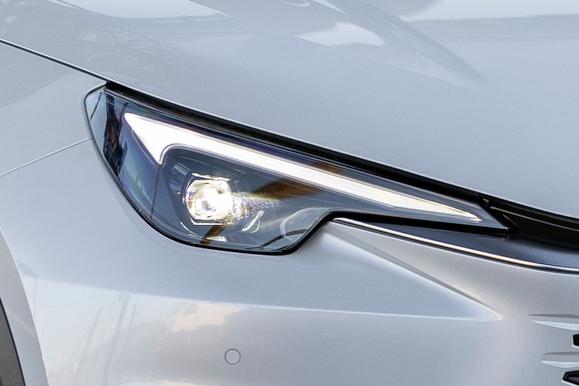

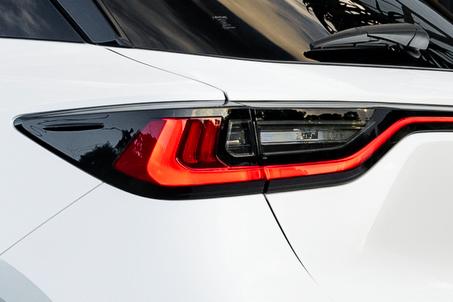

LBX Luxury 2WD highlights:
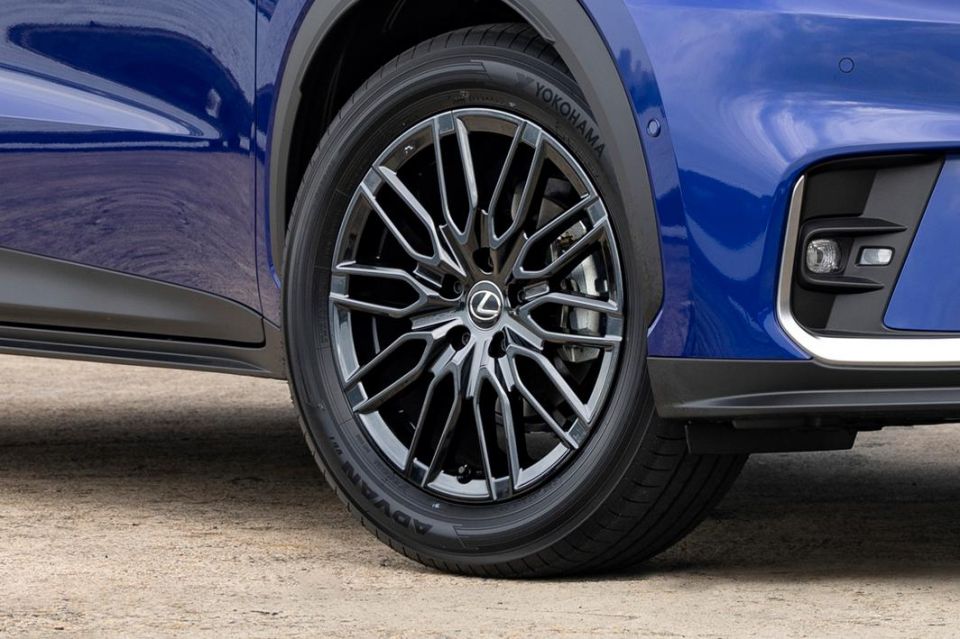

LBX Sports Luxury 2WD adds:
LBX Sports Luxury AWD adds:
The Lexus LBX hasn’t been crash-tested by ANCAP or Euro NCAP at this stage.
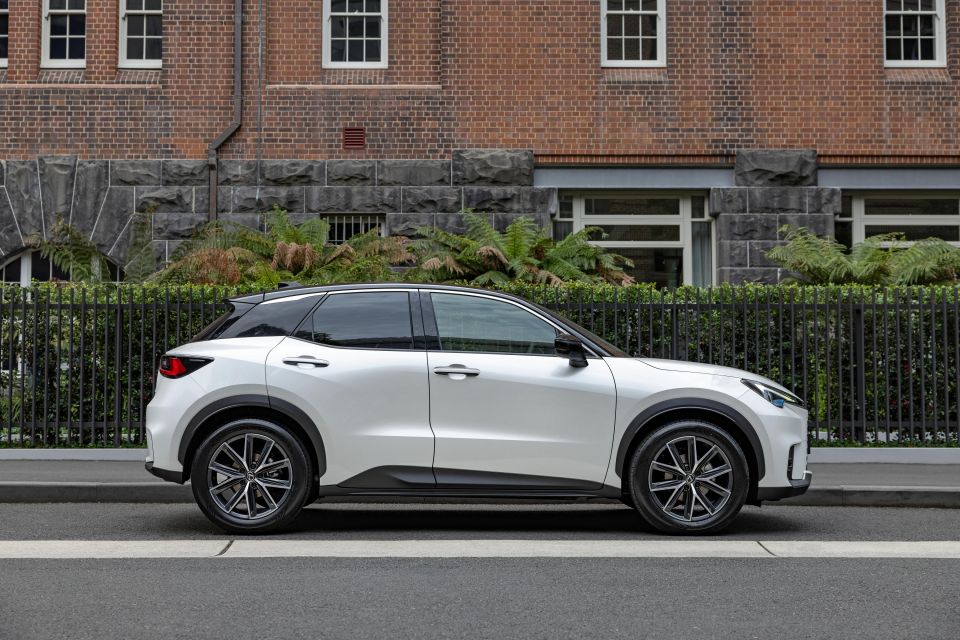
The following safety equipment is standard across the range:
The LBX Sports Luxury adds a semi-autonomous parking assist.
All Lexus LBX variants also receive a three-year complimentary subscription to Lexus Connected Services. It offers customers real-time vehicle information, remote functionality, and emergency calling.
The Lexus LBX is covered by a five-year, unlimited-kilometre warranty like the rest of the Lexus lineup.
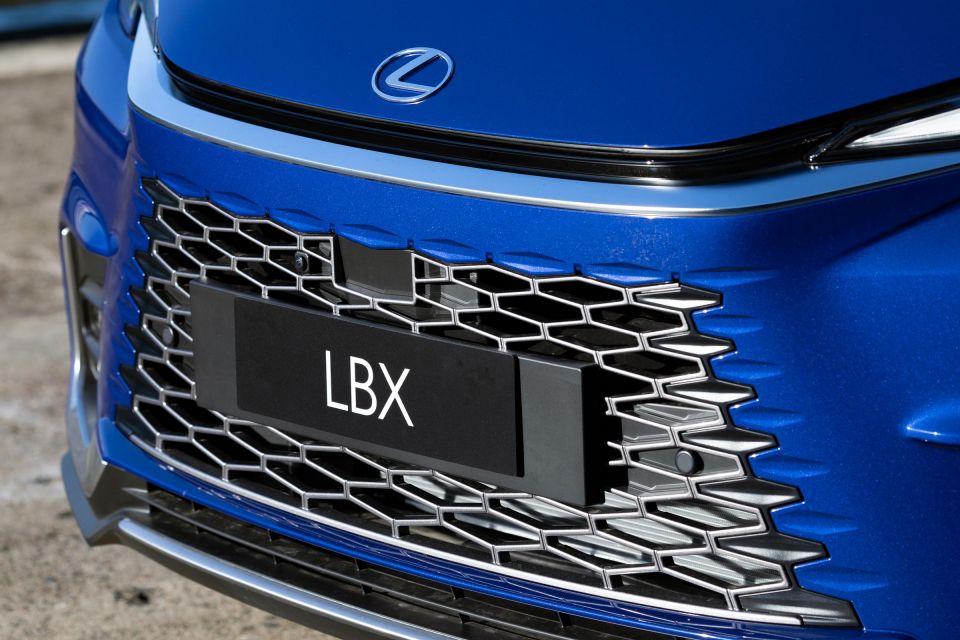
Logbook services are required every 12 months or 15,000km, whichever comes first. The first five services are capped at $595 each.
A three-year complimentary Encore subscription is also provided at no extra cost. It includes roadside assistance, complimentary service loan car, Ampol fuel discounts, as well as exclusive lifestyle event offers.
It’s hard not to draw parallels to the Toyota Yaris Cross when driving and experiencing the Lexus LBX, but it still drives and feels like a Lexus should.
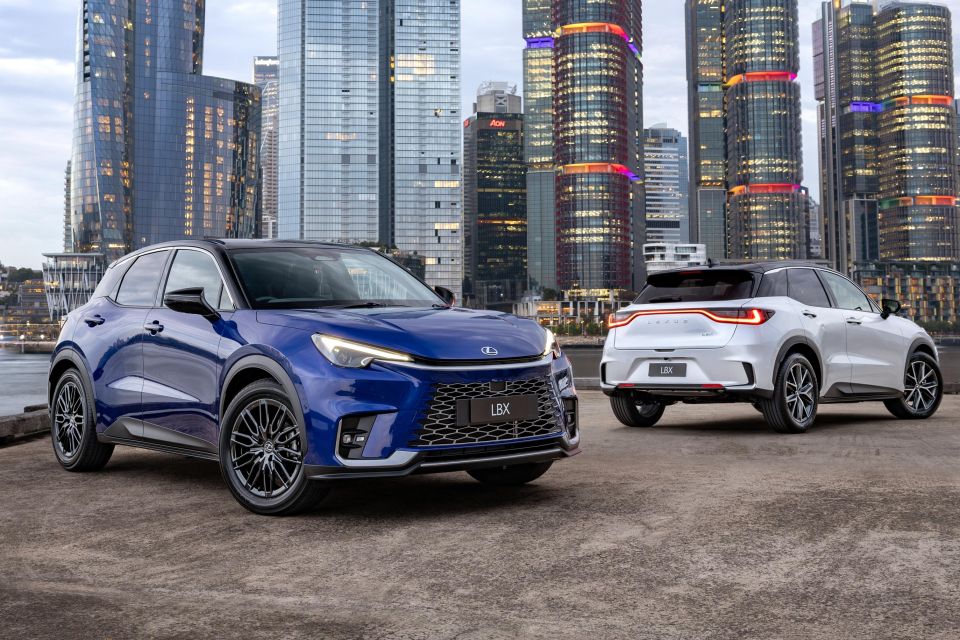
The ride is very compliant, it’s dynamic in the city, and the noise suppression is good for its segment.
I know certain people are going to love this car. Those people are likely singles and couples who don’t need to use the second row of seating all the time (if at all) and also don’t need an overly massive boot.
While this car offers plenty of luxurious touches and fuel-sipping hybrid efficiency, the LBX does come with a price premium that may turn people off straight away. A starting price of $50k drive-away for a fancy Yaris Cross Hybrid is a considerable amount of money.
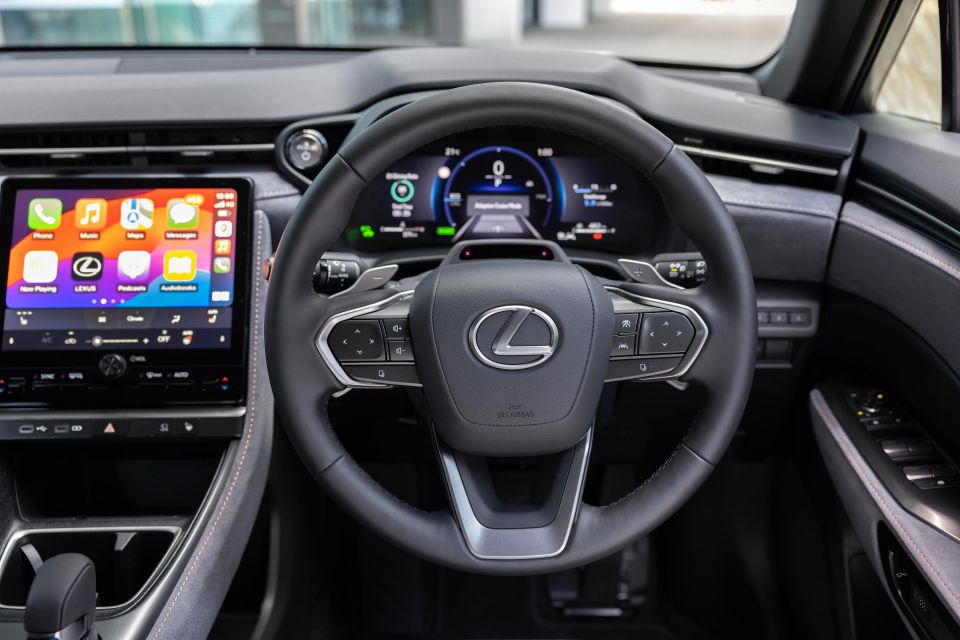
As it currently stands, the sweet spot of the LBX range is the entry-level Luxury 2WD variant. It doesn’t feel like it’s missing much standard equipment, plus the NuLuxe leatherette finishes are softer and more supple than the proper leather-accented finishes in the flagship Sports Luxury variants.
Sure the LBX Sports Luxury may pick up features like active noise cancellation, a premium Mark Levinson sound system, and a head-up display, among others, it also has some annoying quirks including the finicky touch-sensitive steering wheel buttons.
The flagship AWD variant is also harder to recommend because besides potentially adding a touch more grip and security in slippy scenarios, it just weighs the car down and reduces boot capacity.
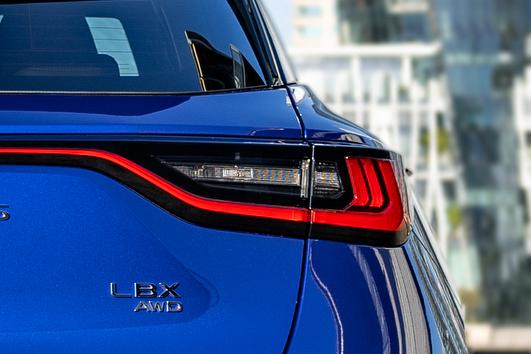
Click the images for the full gallery
MORE: Buy a Lexus LBX MORE: Everything Lexus LBX
Where expert car reviews meet expert car buying – CarExpert gives you trusted advice, personalised service and real savings on your next new car.
Jack Quick is an automotive journalist based in Melbourne. Jack studied journalism and photography at Deakin University in Burwood, and previously represented the university in dance nationally. In his spare time, he loves to pump Charli XCX and play a bit of Grand Theft Auto. He’s also the proud owner of a blue, manual 2020 Suzuki Jimny.


Anthony Crawford
6 Days Ago


Matt Campbell
5 Days Ago


James Wong
4 Days Ago


Max Davies
3 Days Ago
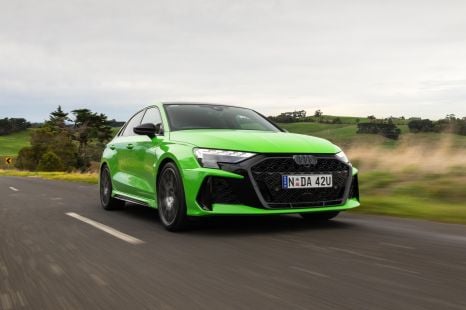

Josh Nevett
2 Days Ago
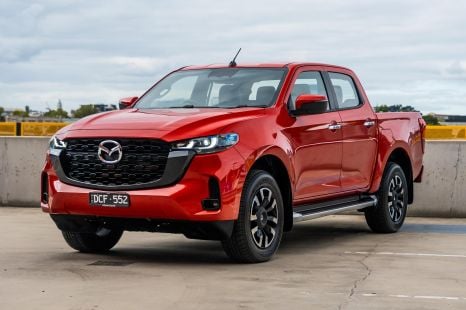

Josh Nevett
23 Hours Ago